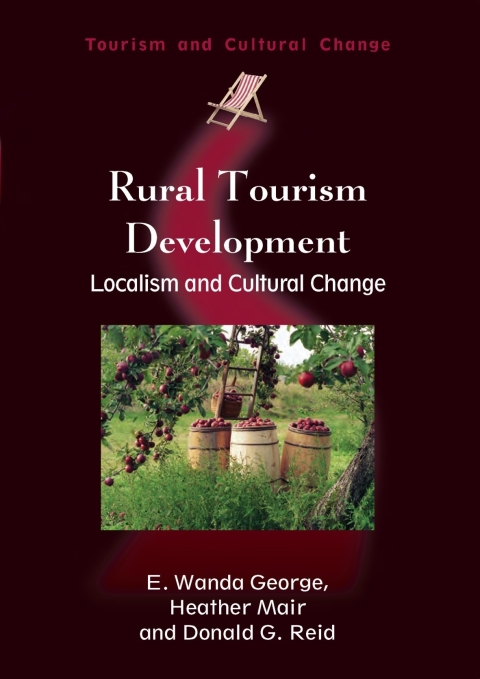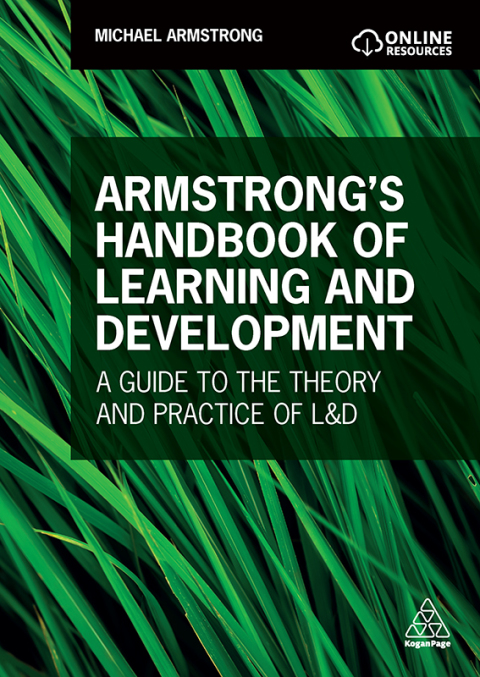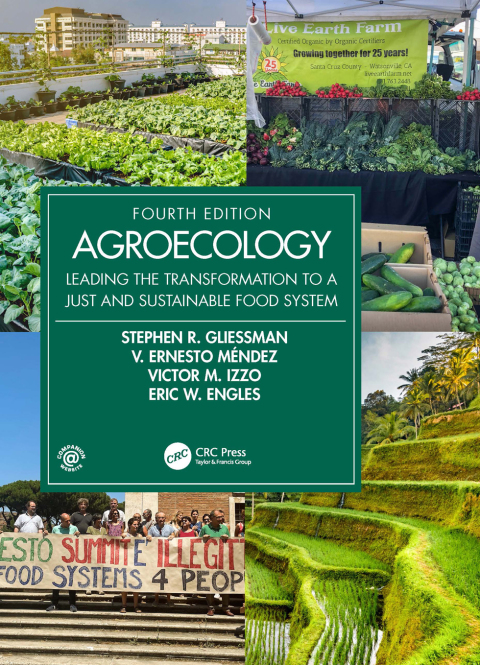Description
Efnisyfirlit
- Coverpage
- Titlepage
- Copyright
- Contents
- List of Figures and Tables
- Chapter 1: Introduction to Rural Tourism Development
- Introduction
- The Role of Social Theory: The Benefits of a Political Economy Approach
- Dominant Themes Underpinning this Text
- Tourism in a globalizing world
- Cultural change and the processes of rural community commodification
- The importance of resistance
- The rural appeal
- Defining Rural and the Rural Landscape
- Tourism Development in Rural Areas
- Outline of the Book
- Methodological Approach
- Case study approach: A method, a format
- Research methods
- Contribution to Research
- Analytical Framework
- Chapter 2: Political Economy of Rural Tourism Development in Canada
- Introduction
- Key Terms: Neoliberalism and Restructuring
- The Context of Canadian Development and Rural Policy: A Brief Historical Overview
- Rural Development: The Attraction of Tourism
- Impacts: The Opportunities and Challenges of Tourism and Rural Development
- Conclusion
- Chapter 3: The Case of Lunenburg, Nova Scotia
- Introduction
- Key Theoretical Concepts: Commodification of Culture; Gentrification
- Commodification of culture
- Gentrification
- Research Approach
- The Case of Lunenburg
- Background
- History of Lunenburg
- Collapse of the fishery in Atlantic Canada
- Cultural tourism in Nova Scotia
- Tourism Development in Lunenburg
- A ‘responsive’ approach to tourism development in Lunenburg, Nova Scotia
- Tourism’s trajectory in Lunenburg
- The UNESCO World Heritage Site designation process
- State of the fishing industry in Lunenburg since 1995
- Reconnecting to Theoretical Concepts
- Commodification of Lunenburg’s cultural assets
- Gentrification in Lunenburg
- Conclusion
- Lunenburg’s response tourism: A shift to a service-based industry
- Lunenburg’s future
- Chapter 4: The Case of Port Stanley, Ontario
- Introduction
- Key Theoretical Concepts: Rejuvenation; Integration
- Research Approach
- The Case of Port Stanley
- Background
- History
- Port Stanley today
- Tourism development in Port Stanley
- Rejuvenation, Integration and Tourism in Port Stanley
- Conclusion
- Chapter 5: The Case of Vulcan, Alberta
- Introduction
- Key Theoretical Concepts: Contrived Tourism Developments; Contested Meanings of Place
- Research Approach
- The Case of Vulcan, Alberta
- Background
- History
- Tourism Development in Vulcan
- The Rural Initiatives Program: A community-visioning session
- Building a (Contested and Contrived) Tourism Image
- Reconnecting to Theoretical Concepts
- Contesting and negotiating the meanings of community
- Conclusions
- Chapter 6: The Case of Canso, Nova Scotia
- Introduction
- Key Theoretical Concepts: Tourism Destination Development; Community/Place Identity; Cultural Tourism (Creative Cultural Industries)
- Tourism destination development
- Community/place identity
- Cultural tourism and the role of the creative cultural industries (arts and music)
- Research Approach
- The Case of Canso
- Background
- History
- Tourism Development in Canso
- A ‘deliberate’ approach to tourism development in Canso
- The tourism event/attraction and Stan Rogers
- Reconnecting to Key Concepts
- Community participation/volunteerism
- Community and identity
- Sociability effects of cultural (arts and music) tourism
- Conclusions
- Chapter 7: Synopsis: From Case Studies to Premises
- Introduction
- Cross-case analysis
- From Case Studies to Premises
- Conclusion
- Chapter 8: The Complex Role of Local Culture in Rural Tourism
- Introduction
- Key Theoretical Concepts: Local Culture; Culture Economy; Commodification of Culture
- Tourism
- What is Culture?
- A culture economy
- A dichotomous relationship between tourism and culture
- Tourism as Continuity
- Peace
- Cultural understanding/appreciation
- Cultural revitalization
- Economic revitalization
- Affirming and promoting community identity
- Tourism as Rupture
- Cultural conflict
- Leakage and loss of local control
- Staged authenticity
- Acculturation/loss of diversity
- Cultural appropriation
- A Cultural Turn
- Conclusion
- Challenges for rural communities
- Understanding culture and tourism
- Redefining the concept of commodifying culture
- Determining what aspects of culture to commodify
- Chapter 9: Changing the Rural Landscape
- Introduction
- Key Theoretical Concepts: Gentrification; Branding and Image
- What is Gentrification?
- Gentrifying Rural Landscapes and Rural Communities
- Tourism as a Force of Gentrification
- Gentrification: Future trends
- Building the Rural Brand: Theming and Imaging the Countryside
- Branding and theming
- Rural communities as urban playgrounds
- Sense of place
- Conclusion
- Chapter 10: Notions of Community
- Introduction
- Key Theoretical Concepts: Community; Community Development; Tourism Planning
- The Idea of Community
- The Enemies of Community
- Community Development and Cultural Commodification in Rural Tourism Planning
- What are Community Development and Citizen Participation?
- The Importance of Involvement of Community in Tourism Development
- Community Development is not a Panacea
- Developmental Intent of Citizen Involvement in the Tourism Planning Process
- Chapter 11: Rural Community Sustainability and Sustainable Rural Tourism
- Introduction
- Key Theoretical Concepts: Sustainable Development; Sustainable Tourism; Cultural Capital
- Sustainability (Sustainable Development)
- Sustainable tourism
- UNWTO/UNEP global goals for sustainable tourism
- Sustainable tourism in Canada
- Rural Communities and Sustainability
- Community Capacity and Sustainability
- Human, social, natural and finance/built capital
- Social cohesion, social relations and social sustainability
- Culture as Capital
- Cultural capital and intangibles
- New Conceptualizations of Community Capital for Sustainability
- The Future: Community Capacity and Rural Sustainability Conclusion
- Chapter 12: The Role of Public Policy
- Introduction
- Key Theoretical Concepts: Public Policy; Tourism Policy; Social Policy
- What is Public Policy?
- Tourism and Public Policy
- The role of values and ideology
- Tourism Policy in Practice: A Public-Private Mix
- The international context
- Tourism policy in Canada
- Development Policy and Tourism: A Conflict of Values?
- Place promotion
- Sustainable Tourism and the Role of Policy
- Public-Private Partnership Policy Initiatives
- New Directions: A Role for Social Policy in Tourism Planning?
- What Constitutes Sound National and Regional Community Development Policy in Rural Areas?
- Conclusion
- Chapter 13: Presenting a Process for Tourism Planning that Engages Community
- Introduction
- Key Theoretical Concepts: Community Tourism Planning Process; Community Engagement
- Challenging The Prerogative of Economics and Business in the Tourism Planning Process
- Community Visioning Sets the Framework and Controls for Tourism Development
- Setting the Stage for Planning the Tourism Product
- A Sample Community Tourism Development Process
- Key Attributes of this Approach
- Chapter 14: The Way Forward: Rethinking Rural Tourism Research and Practice
- Introduction
- Key Theoretical Concepts: Tourism Rural Development; Community Tourism Planning
- What constitutes development?
- What motivates development?
- Who is in control of the development?
- What is the appropriate development process?
- What constitutes the knowledge base for development?
- Managing Rural Tourism Successfully
- A New Analytical Framework for Understanding Tourism Development
- Planning Tourism Development Strategies
- Conclusion
- References
- Index







Reviews
There are no reviews yet.